I have a lot of respect for Egals, I simply, don't concur with them that 'more women' in the pulpit will change a historical and philosophical foundation of 'misogyny' within the church, or in society as a whole. I faced this same argument or debate within the communist and socialist circles, the idea that a gender parity would somehow magically take patriarchy and misogynist attitudes and erase them--or that forceful 'degenderizing' or turning women into men pretty much, because that is what it is, would erase misogyny,
it doesn't, it only works to serve the power structure more because you are Still dealing with the hierarchy and the power ladder so to speak, and the most harmful thing is, more than often, the ONLY women allowed into power, are those very women, who will cater/pander to the 'men' to keep their positions, meanwhile sacrificing millions of women so as to not lose their position of 'power'. We see this in our world all the time,
that is why, when I see or hear churches say, we have women in our ministries, so what, big f'n deal...usually they are token or parrots who simply spew out the 'agenda's of men' While giving lip service, to women.
and we see this, as well in the Military, of all places. The military and women in combat is one issue that I especially get pissed at the numerous of 'middle to while upper class WHITE feminist' in this nation who 'sold women out', those same women, who bitched about a woman's right to 'fight' in man's wars--are quiet now, when those women, younger women mind you, not only fight in those Man's wars--they are Raped by the very 'comrades' while doing so, with impunity. But hey, that's patriarchy and the good ole boys WAR CLUB, its all about big dicks, big guns, and big bombs,
don't ya know---and more women in the military, has NOT in any way, reduced rapes, reduced violence, reduced militarization, and not only that--the women IN the military, are more likely to be raped, not by enemy combatents, but by the very 'brothers' they are fighting with.
see:
U.S Army Rapes – The Hidden War

During her deployment in Baghdad, Sandra Lee was raped twice by a fellow American soldier. Back home, she works to draw attention to the rising cases of sexual assault within the ranks. (Photo Credit: Peter Ash Lee)
On Veterans Day, as President Obama laid a wreath at Arlington National Cemetery, he did so with the full knowledge that for Americans serving across the world, the face of war had changed forever.
No longer are our wars overseas fought solely by men—but also, by an increasing number of women.
The wars in Iraq and Afghanistan are the first conflicts in which tens of thousands of American military women have lived, worked and fought for prolonged periods, cultivating a new breed of female combatants.
Yet a startling congressional report by the Department of Defense (released in March) revealed that one in three female combatants experience rape or attempted rape during their military service. The data indicated that there were 2,923 sexual assaults reported in fiscal 2008—a nearly 8 percent spike over the previous year.
In The Lonely Soldier: The Private War of Women Serving in Iraq, author Helen Benedict describes sexual assault against female service members in Iraq. As one soldier explains in the book, “There are only three kinds of females the men let you be in the military: a bitch, a ho or a dyke.”
One 21-year-old soldier Benedict profiled took to carrying a knife with her at all times. “The knife wasn’t for the Iraqis,” said Spc. Mickiela Montoya, who served in Iraq with the National Guard in 2005. “It was for the guys on my own side,” she told the author, who interviewed more than 20 Iraq veterans for her book.
Staff Sergeant Sandra Lee, who served in Iraq from December 2003 to October 2004, knows exactly what Montoya is talking about.
Raped twice by a fellow soldier during her deployment in Baghdad, Lee, 33, has been drawing attention to the rising cases of sexual assault within the ranks.
Working with Veterans for Peace, a nonprofit organization based in St. Louis, Missouri, Lee kicked off their “Military Awareness” campaign in October by making her first public statement about the assaults.
That statement is documented on YouTube. On October 13, during a march in New York City, Lee said, “How could I let this happen to me? I feel stupid, I feel ashamed, I feel shattered,” she continued, recalling her emotions after getting raped. Her voice trembled as she expressed her shame and her failure to report the crime.
After several years of silence, Lee is determined to help other women cope with sexual assault by talking openly about it. “This person,” says Lee, referring to her rapist, “was someone I knew and trusted. It was a friend and a trusted relationship.”
On a recent evening in Manhattan, Lee, a trained opera singer, jokes that she can hold her high notes just as well as she handles her service weapon.
In New York’s glitzy theater district, she could not be farther away from Iraq’s bombs and mortars, but diagnosed with post-traumatic stress disorder upon her return, the war still rages in her mind.
“There are only three kinds of females the men let you be in the military: a bitch, a ho or a dyke.”
Lee, deployed as part of the Civil Affairs brigade in 2003, was one of the thousands of soldiers in Iraq who despite holding non-combat roles, ended up performing dangerous duties, including looking for improvised explosive devices (commonly referred to as IEDs or roadside bombs) and tasked with rebuilding infrastructure in a war zone.
When Lee first heard about her deployment to Baghdad she recalls her jubilant reaction. “My first reaction was ‘Great!’ Iraq was the place to be!” she says. But when her unit landed in the ravaged city, reality hit home. “There can be no training on what to expect [in a war zone],” she says. “It’s so unpredictable. You can’t train for that.”
Lee was overcome with exhaustion, coping not just with the physical toll of being in Iraq, but also with the mental fatigue of being on guard 24/7.
She recalls an atmosphere where inappropriate remarks and unwanted attention from the male soldiers was the norm. “The harassment is shocking!” exclaims Lee. “It is unreal.”
Then one evening in 2004, a male colleague raped her. It was the first of two such incidents. Lee kept her silence.
Lee’s story echoes the findings of an annual Pentagon report to Congress earlier this year, stating 165 instances of reported sexual assault during a six-month period from the Iraq and Afghanistan military campaigns alone; a 26 percent rise over the previous year.
Despite the assaults, Lee, bogged down by shame and a fear of retribution, did not report the incidents to her superiors. “How will they judge me?” she recalls thinking, explaining her reluctance.
Female soldiers can report rape in the military in two ways. “Restricted reporting” allows a victim to report rape anonymously and seek medical and emotional counseling. But restricted reporting does not trigger an official investigation, leaving victims wary that their attackers will find out about the complaint and come after them, analysts say.
Under “unrestricted reporting,” victims can go directly to the commanding officer of their unit and register their complaint. But most of the commanders are male and as a result, notes retired U.S. Army Reserve Colonel Ann Wright, less than 8 percent of reported rapes result in prosecution.
“Even when the perpetrators are convicted, they seldom go to jail for rape,” adds Wright, who is a member of Veterans for Peace. “The atmosphere in the military is looking the other way and not forcefully prosecuting. In their eyes, the value of a man’s career is higher than a woman’s.”
Due to shame, fear and low prosecution rates, less than 20 percent of assaulted female soldiers report these crimes.
For victims, however, the trauma barely ends there.In an institution where esprit de corps and camaraderie are the name of the game, the victim and perpetrator continue to serve side-by-side.
Due to shame, fear and low prosecution rates, less than 20 percent of assaulted female soldiers report these crimes. For victims, however, the trauma barely ends there.
In an institution where esprit de corps and camaraderie are the name of the game, the victim and perpetrator continue to serve side-by-side.
“The difficult thing is to turn around and defend this person,” says Lee, referring to her rapist, with whom she continued to serve in Iraq for an entire year. “I felt awkward, uncomfortable.”
When these victims return home from duty, depression sets in. “They have anger, mistrust, and go into periods of isolation,” says Wright. “They start going down a dangerous spiral.”
Which is exactly what happened to Lee. In October 2004, she returned home, harboring her dark secret. She went back to school in Portland to continue pursuing her degree in international relations.
In class, Lee was angry and irritable. Off campus, she felt agitated, constantly sweeping her eyes to the sides of the road while driving, mentally checking for bombs as she’d done in Iraq. She withdrew completely and didn’t share her anxieties with family or friends.
Lee continued to train as a reservist with her unit in Portland, but it wasn’t until 2007 that her symptoms were recognized as post-traumatic stress disorder.
Lee finally admitted to her doctors that she was raped. All the emotions she’d suppressed over the years came flooding back.
Now, Lee bristles with anger over how the military is “sweeping this issue under the rug.” Though she still has not officially reported her rapist, she is urging victims to speak openly—as she has. As Lee confronts her past, she is also currently engaged in a dispute with the military over disability benefits and worries she might be “other than honorably discharged.”
But she says she has no regrets. “I don’t disdain the military,” says Lee. “My job was fulfilling. I went to Iraq. I was part of history!” she exclaims, even as her eyes well up with tears.
So what can the U.S. military do to prevent these alarming rises in sexual assault?
“There needs to be more than a PowerPoint presentation,” Lee says, referring to the mandatory sexual assault awareness training that many soldiers find tedious.
Wright of Veterans for Peace, meanwhile, calls for greater prosecution.
As more women continue to volunteer for the army, Wright cautions them to be cognizant of what they are signing up for. “Women are not warned that they could be raped in the army,” she says. “Women are being treated improperly by the institution, only because they don’t press charges. It is high time the institution started acting responsibly towards this huge sector of the population.”
Social scientist Dr. Laura Miller of the non-partisan, nonprofit think tank, The Rand Corporation, emphasizes that female soldiers need to talk openly about their assault to break the circle of shame.
“The role has expanded in terms of women who are serving in the military,” she says. “Women are now more integrated; they’re in fighter aircrafts, combat ships. But the military is still disproportionately male.
“Being in a war zone is not like being on a base in the U.S., where you have cameras, lights,” Miller adds. “In a deployed environment, you have a lot of people coming and going, you are exposed to each other 24/7, so it provides opportunities for people with those proclivities.”
Today, there are more than 216,000 women serving in Iraq and Afghanistan, making up almost 11.3 percent of the nearly 2 million U.S. active duty and National Guard troops and reservists sent to both war zones.
Many of these mothers, daughters, sisters and wives will eventually return home—some scarred by the violence of war and mutilated bodies. Others, by the trauma of sexual assault.
Some soldiers, like Lee, remain haunted by both.
This piece first appeared in Koream Journal – a magazine on Korean American affairs.



.JPG)




![HEALING FROM RITUAL AND SPIRITUAL CHILD ABUSE, FEMALE ABUSERS INCLUDED [CLICK PHOTO AND SEE BELOW]](http://1.bp.blogspot.com/_RaqCRK20I9k/S8YugIbo76I/AAAAAAAAAio/4kOqJPQSBC0/S210/fragmented+child.jpg)



















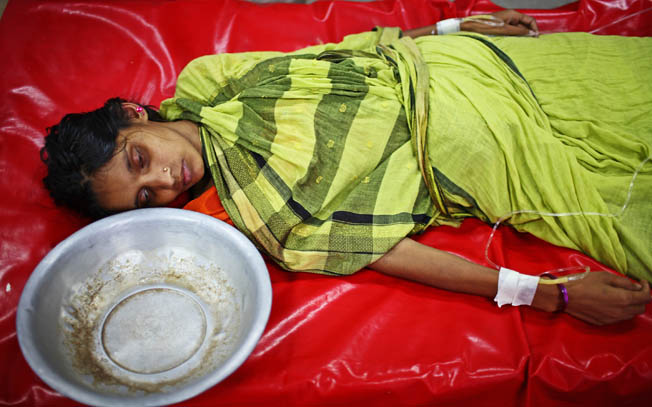
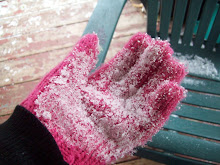























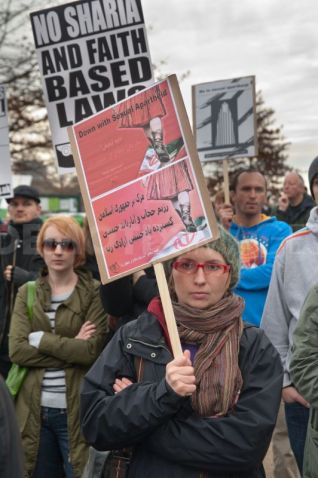


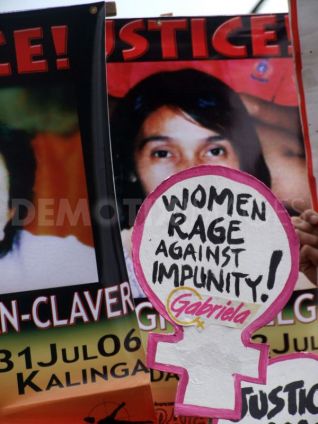






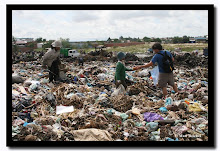

















![Dedicated to the CREATORS, CREATOR, TO HER AND TO HIM [WHAT I BELIEVE IS GOD]](https://blogger.googleusercontent.com/img/b/R29vZ2xl/AVvXsEgRPSu4D2FIthc6FU-FZpdFNfvp07RYJ-vhCpuG1dKBmTOAjU79Sw2JEnqvwz-VLLCnQU9BPMLpW6obLTpxN_fim-yJXwzmhEydrOYR4K8KjU2MS8Go7Zk8RrffKKZG9voljwZ93ySfZP1E/s660/Mountains_spitzer_f.jpg)
0 comments:
Post a Comment